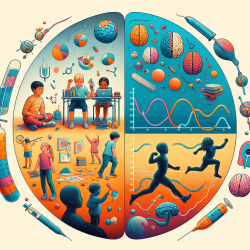The prevalence of obesity has become a significant global health concern, with severe obesity posing considerable challenges to healthcare systems. Traditional behavioral weight loss (BWL) treatments have been the standard intervention for managing obesity. However, the integration of technology, specifically smartphone applications, offers new avenues for enhancing these interventions. The recent study titled "Smartphone-supported behavioural weight loss treatment in adults with severe obesity: study protocol for an exploratory randomised controlled trial (SmartBWL)" provides valuable insights into this innovative approach.
The Role of Technology in BWL Treatment
The SmartBWL study explores the augmentation of traditional BWL treatments with a cognitive-behavioral smartphone application. This app is designed to support patients' weight management skills in their daily lives through personalized interventions. The hypothesis is that this approach will not only be feasible and acceptable but will also enhance weight loss outcomes and overall well-being.
Key Findings from the Study
- The integration of a smartphone app in BWL treatment is hypothesized to improve short-term and long-term weight loss outcomes.
- The app provides personalized support, which is crucial for user acceptance and effectiveness.
- The study employs an ecological momentary intervention design, offering real-time assistance tailored to individual challenges.
- The pilot phase involves adapting the app to ensure optimal acceptance and usability through patient feedback.
- The primary outcome is measured by the amount of weight loss post-treatment compared to pre-treatment levels.
Implications for Practitioners
The findings from the SmartBWL study suggest several ways practitioners can enhance their skills and improve patient outcomes:
- Adopt Technology: Incorporate evidence-based smartphone applications into BWL programs to provide continuous support outside traditional settings.
- Personalize Interventions: Utilize apps that offer personalized interventions to cater to individual patient needs and preferences.
- Engage Patients: Involve patients in the adaptation process of technological tools to ensure they are user-friendly and meet their specific requirements.
- Pursue Further Research: Stay informed about emerging studies and technologies that could further enhance BWL treatments.
The Future of Obesity Management
The integration of technology in healthcare, particularly through smartphone applications, represents a promising advancement in obesity management. As practitioners, embracing these innovations can lead to more effective interventions and improved patient outcomes. The SmartBWL study sets a precedent for future research and development in this field.










